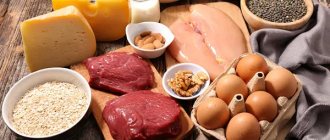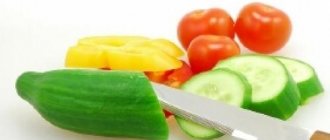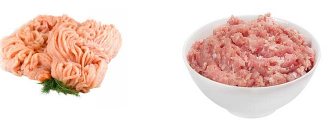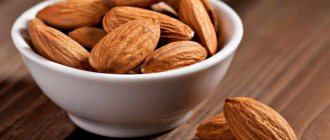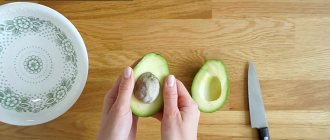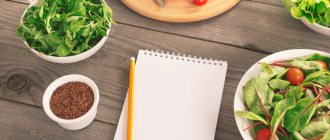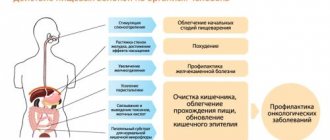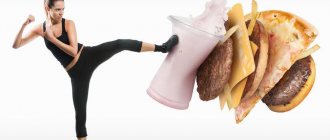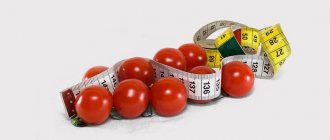Vitamin supplements for vegetarians and vegans include vitamins, minerals and active compounds in large quantities, often exceeding the daily requirement. However, vegetarians who eat properly and fully do not usually need additional sources of useful elements; they get plenty of nutrients from plant and dairy products. But vegans, who eat exclusively plant-based foods and do not consume milk, eggs, or even honey, may experience a deficiency of certain nutrients. Such people definitely need to take special vitamins for vegetarians and vegans.
What vitamins do plant-based dieters lack?
Strict vegetarians often have a lack of omega-3 fatty acids, iron, calcium, and vitamins B12 and D in their bodies.
- Omega-3 fatty acids. They prevent the development of atherosclerosis, normalize the concentration of lipids in the blood, have an anti-inflammatory effect, optimize blood density, and prevent the occurrence of mental disorders.
- Iron. Participates in the movement of oxygen in the blood. When a microelement is deficient, a person’s immune system is weakened, anemia develops, and chronic fatigue occurs.
- Calcium. Strengthens bones, maintains healthy muscles, dilates blood vessels, normalizes the nervous system, regulates the synthesis of enzymes and hormones.
- Cyanocobalamin or vitamin B12. Participates in the formation and regeneration of cells, protects the nervous system from the effects of negative factors. With a lack of substance, weakness, depression, chronic fatigue, weight loss, lack of appetite, disruption of the intestinal tract, weakening of memory and mental abilities, and anemia are observed.
- Calciferol or vitamin D. With a lack of substance, rickets develops in children, and skin pathologies are observed in adults.
The best vitamins for vegetarians
The APL company offers unique vitamins for vegetarians based on healing plant extracts - accumulated APLGO tablets . The line includes 14 types of pills, designed both to solve specific health problems and to improve the overall health of the body. Lollipops contain the most important vitamins and minerals in the required quantities and in the optimal ratio, thereby achieving the best results.
APLGO dragees are effective vitamin complexes for vegetarians , replenishing the lack of essential nutrients that occurs when avoiding animal products.
If you are following a vegetarian diet, we recommend taking the following APLGO tablets:
GRW - ingredients have an immunostimulating effect, increase the body's resistance to infectious diseases.
The high content of antioxidants provides a rejuvenating effect. These substances neutralize the effects of free radicals, thereby preventing cell aging.
The product helps maintain visual acuity and clarity.
Increases joint mobility, improves coordination of movements.
Taking GRW tablets helps protect the body from aggressive external factors and significantly increases vital energy.
Active components stimulate the process of breakdown and absorption of proteins, the reproduction of beneficial intestinal microflora, and improve digestion.
The product increases physical and mental performance and helps maintain clarity of thinking.
HRT - valuable herbal components are specially selected taking into account their positive effect on the heart muscle and blood vessels.
Regular consumption of the pill helps normalize blood pressure. This effect is achieved due to the expansion of blood vessels.
Vascular walls become stronger and more elastic.
The product has a positive effect on the rheological properties of blood, stimulates blood circulation, and prevents the formation of blood clots.
Due to the content of a large number of antioxidants, it neutralizes the destructive effects of free radicals on cells.
Reduces capillary permeability.
Strengthens myocardial contractions while reducing its excitability.
Improves cerebral circulation.
SLD - a complex of active substances significantly strengthens joint tissue, increases their elasticity, preventing the destruction of cartilage and the occurrence of pain. The vitamins in the pills will be an excellent addition to a vegetarian diet . Thanks to the content of unique components, the product increases the elasticity of cartilage, ligaments, tendons, prevents a decrease in bone strength, and accelerates recovery after exercise.
A natural product from APL helps to quickly relieve joint pain.
Thanks to its unique components, the product promotes rapid regeneration of damaged tissues, stimulates the production of synovial fluid and prevents further progression of the disease.
Dragees act directly on the cause of pain: they suppress the inflammatory process and eliminate tissue swelling.
The active components of the unique product strengthen tendons and ligaments, reduce the load on joints and thus prevent their destruction.
GTS - contains vitamin B12 and other B vitamins, which restore energy, have a beneficial effect on metabolic processes in the tissues of the nervous system, improve the transmission of nerve impulses, and help maintain the beautiful appearance of the skin.
Coenzyme Q 10 in the tablets neutralizes the activity of free radicals, which are the main factors of aging. There is evidence of the positive effect of this substance on blood vessels and its ability to prevent the development of atherosclerosis.
The vitamins and minerals contained in the product stimulate the process of digestion of food, increase the amount of biochemical energy obtained from the breakdown of carbohydrates, proteins and fats.
GTS increases life expectancy, has a positive effect on blood supply to the brain, cognitive abilities, and motor functions.
Dragees activate hematopoiesis.
A positive effect on thyroid function was noted.
Physical endurance increases and intellectual abilities improve.
GTS dragee from APL relieves irritability, anxiety, and chronic fatigue, which often occur when switching to a vegetarian diet.
Where does a person get vitamin B12?
Cyanocobalamin is synthesized by bacteria. In herbivores, the synthesis of the substance occurs in the rumen or in the last section of the small intestine. The vitamin accumulates mainly in the liver, kidneys, and heart. A predator, eating a herbivorous prey, receives cyanocobalamin from its organs. Humans, being anatomically a herbivorous creature, are forced to obtain vitamin B12 from the following sources:
- animal products;
- the contents of one’s own large intestine while ignoring food hygiene;
- pharmaceuticals.
Why is the vitamin not synthesized in humans in the small intestine, like in herbivores? It's all about evolution. Human ancestors were originally herbivorous creatures, but expanded their diet to include meat. Over thousands of years of a meat diet, the human intestine has adapted to uncharacteristic food and stopped producing the vitamin in the small part, as it began to receive it in abundance with food. But it should be noted that cyanocobalamin is still synthesized in the large intestine, but is not absorbed into the blood due to the absence of glycoproteins there that regulate the absorption process. Vitamin B12 can only be absorbed into the blood in the small intestine, but there are no bacteria forming the substance there.
Some raw foodists claim that as a result of returning to a natural diet, their small intestines began to work correctly, producing cyanocobalamin in optimal quantities. But it is impossible to verify the veracity of the claims of raw foodists. These people are probably being disingenuous, secretly using pharmacy vitamins, misleading their followers.
Signs of vitamin B12 deficiency in the body
Vitamin B12 accumulated in the body is consumed gradually. Therefore, strict vegetarians who refuse to take synthetic cyanocobalamin do not experience health problems associated with vitamin deficiency immediately, but several years after switching to plant foods. When there is a lack of vitamin B12 in the body, anemia occurs, accompanied by the following symptoms:
- weakness, drowsiness, chronic fatigue;
- dizziness, tinnitus;
- memory impairment;
- depression;
- weakened vision;
- tachycardia;
- difficulty breathing;
- disturbances in the functioning of the stomach, lack of appetite;
- inflammation of the mucous membranes of the tongue, bleeding from the gums;
- pale skin;
- numbness of the limbs;
- impaired coordination of movements.
Vitamin deficiency as a consequence of vegetarianism
Often among well-nourished people you can hear the opinion that one of the common problems among vegetarians is vitamin deficiency. Beliefs were divided on this issue. One part of the population believes that eating only foods of plant origin will inevitably lead to this disease sooner or later. But, disputing this statement, nutritionists prove that a properly formulated diet, supplemented with the necessary complexes of vitamins, minerals and plant-based dietary supplements, completely eliminates the occurrence of such a problem.
The issue of including food supplements and vitamins in daily use during a protracted illness, pregnancy, breastfeeding, stressful situations, etc. is especially acute. It is during such periods that a large amount of energy is consumed by the human body, and everyday plant-based nutrition is not able to fully provide the necessary balance.
Even if there is no urgent need for the use of vitamin complexes and nutritional supplements, for preventive purposes medical workers still strongly recommend using them during the off-season. They will not cause any harm, but will provide additional support to the body.
Products filled with vitamins and dietary supplements
Many people who are adherents of a vegetarian diet mistakenly consider ordinary pharmacy vitamin complexes to be the best option for replenishing the lack of substances in the daily diet. In most cases, these drugs are not suitable for such purposes, since their production involves components of animal origin. Even about the same complex from different manufacturers, it is impossible to speak with complete confidence about the same ingredients used in production.
Therefore, if you have any doubts about the composition of a pharmacy vitamin complex, doctors recommend turning to trading platforms that specialize in herbal preparations only.
Based on the above, you can determine which vitamin deficiency occurs with a vegetarian diet:
retinol (vitamin A)
- beef liver,
- butter,
- sour cream,
- egg yolk,
- fish fat,
- cottage cheese,
- milk,
- caviar,
- cheese;
calciferol (vitamin D)
- fatty fish,
- caviar,
- fish fat,
- egg yolk,
- butter,
- cheese;
cyanocobalamin (vitamin B12)
- liver of poultry and domestic animals,
- mutton,
- egg yolk,
- cheese,
- fish,
- seafood,
- sour cream,
- yogurt.
The most difficult of these vitamins to replace is B12. It is very difficult to replenish it with plant components.
Consequences of vitamin deficiency
At first glance, a lack of just three vitamins cannot cause significant harm to the human body with a vegetarian diet. But this is fundamentally wrong. A lack of these substances over a long period of time can lead to serious and irreversible health processes.
Thus, a lack of vitamin A leads to:
- increased risk of rhinitis, bronchitis, dermatitis, pharyngitis and other inflammatory processes;
- drying of the cornea and its purulent softening;
- slower development of bone tissue;
- intense peeling of the skin and mucous membranes;
- impaired vision during twilight and orientation in the dark.
A lack of vitamin D is fraught with:
- joint pain;
- frequent depression;
- a sharp decrease in body weight;
- heart and vascular problems;
- migraine;
- muscle cramps;
- slowing down the development of the child’s body;
- deformation of the bone skeleton, teeth, the occurrence of caries;
- hypothyroidism of the scalp;
- hypertension;
- sleep disturbance.
B12 deficiency entails:
- vision problems;
- anemia;
- lack of appetite;
- lethargic, weak, sleepy state;
- violation of the timing of menopause in women;
- decreased amount of iron;
- low platelet count;
- increased risk of malignant tumors;
- mental disorders;
- disruption of the nervous system.
Therefore, one of the most important factors in a healthy plant-based diet is providing the body with the necessary daily amount of the listed substances.
Vegetable substitutes A, D, B12
To replace drugs of animal origin, nutritionists advise eating an increased dose of foods containing the listed substances.
To increase the level of retinol in the body, you should include in your diet:
Legumes:
- peas,
- soybeans
Seaweed:
- kelp.
Vegetables:
- spinach,
- broccoli,
- parsley,
- green onions,
- Bell pepper,
- carrot,
- pumpkin.
Fruits:
- watermelon,
- peaches,
- melon,
- grape,
- apricots,
- apples.
Berries:
- sea buckthorn,
- rose hip,
- cherries.
Herbs:
- lemongrass,
- sage,
- clover,
- raspberry leaves,
- bearberry,
- sorrel,
- violet leaves,
- plantain,
- Cayenne pepper,
- fennel,
- horsetail,
- oats,
- burdock root,
- hop,
- borage,
- peppermint.
To consume the daily norm of cyanocobalamin, you need to increase the amount:
- algae;
- naturally grown mushrooms;
- yeast.
The most difficult way to compensate for calciferol deficiency is by consuming all types of dairy products and eggs.
In order for the human body to receive the optimal amount of all necessary elements, the daily menu should be carefully worked out to the smallest detail. After all, they are the ones that, accumulating over time, can play a cruel joke on your health.
Where can vegetarians get vitamin B12?
Vitamin B12 is not found in plant foods, but is present in soil and human feces. It is clear that a civilized person will not eat dirty, uncleaned vegetables and root vegetables, and will not pick through his own feces, as primates do. But where can a vegan get cyanocobalamin? To avoid vitamin B12 deficiency, a strict vegetarian must properly organize their diet.
- Vegetarians should eat foods containing vitamin B12 2–3 times a day: eggs, milk, dairy and fermented milk products. Vegans have to buy products artificially enriched with cyanocobalamin.
- People who adhere to a plant-based diet must periodically take vitamin complexes that include vitamin B12.
- It is not advisable for vegans to take large amounts of folic acid-based medications, since this substance makes cyanocobalamin deficiency invisible.
Strict vegetarians should have their blood tested annually for vitamin B12 levels to prevent anemia. Especially for vegans, stores today sell a huge number of products enriched with cyanocobalamin. This:
- vegetable oils;
- soy milk;
- corn breakfasts;
- yeast extracts;
- vegetable bouillon cubes;
- Soy meat.
What nutrients are most often deficient in vegans and how can they be replenished?
Despite the fact that plant-based nutrition is really useful
, there is a certain group of nutrients that cannot be replenished
without consuming animal products.
Or, if it is possible to replenish their supply, then only in small quantities.
Find out which nutrients and vitamins you should be getting regularly if you're vegan
. [1] [2] [3] [4] [5] [6]
Vitamin B12
The first and very often deficient nutrient is vitamin B12
, that is, cobalamin, which
is naturally found in meat, fish, as well as eggs, milk and liver.
It is precisely its sources that are so lacking in the vegan diet.
At the same time, this B vitamin really has a beneficial effect on the body. It is important for many processes in the body, including protein metabolism and the body's production of oxygen-carrying red blood cells
.
It also plays a critical role in the health of the nervous system
and is essential for
the proper functioning of the immune system.
A lack of vitamin B12 in the body can lead to:
- to anemia,
- damage to the nervous system,
- to infertility,
- to bone or heart diseases.
Deficiency symptoms include fatigue, weakness, constipation, loss of appetite and weight loss.
Signs of vitamin B12 deficiency may also include
tingling in the arms and legs, depression, confusion, memory and balance problems
. [7] [8]
The recommended daily allowance for vitamin B12 is 2.4 mcg for adults, 2.6 mcg during pregnancy, and 2.8 mcg during breastfeeding.
.
The only scientifically proven way for vegans to reach their daily requirement is to eat foods rich in vitamin B12.
These include
plant milks, soy products, breakfast cereals, spirulina, chlorella and yeast
.
However, it should be added that to achieve the desired norm, a vegan will have to take a really large amount of these products per day.
Therefore, the most effective way is
to take vitamin B12 supplements
.
You can choose either vitamin B12 supplements alone or cobalamin in a B-complex. Thanks to nutritional supplements, your body will immediately receive the optimal dose of all types of B vitamins
. [1] [2] [3] [4] [5] [6]
Zinc
Zinc is a mineral that our body, unfortunately, cannot produce on its own.
.
Therefore, it is extremely necessary to replenish its supply with food or nutritional supplements. Zinc is essential for the functioning of more than 300 enzymes that
affect
metabolism, immune function and cell repair in the body
.
It is also extremely important for skin health, DNA synthesis and protein production.
However, its insufficient consumption can
cause serious harm to the body
. This may lead to:
- development problems,
- hair loss,
- diarrhea,
- delayed wound healing.
[9]
Most zinc is found in animal products
such as
mussels, meat, fish and eggs.
Also, few plant foods contain large amounts of zinc.
In addition, the absorption of zinc from some plant sources is limited
due to their content of plant compounds called phytates.
Thus, zinc can be replenished with legumes, whole grains, mushrooms, seeds and nuts.
To achieve optimal zinc intake, you should take 8 mg (women)
and
11 mg zinc (men) per day
.
The dose should be increased to 11–12 mg
for pregnant women and to 12–13 mg for lactating women.
To achieve such indicators, a woman or vegan needs to eat at least 800 g of lentils per day
.
It contains only 1 mg of zinc per 100 g. For comparison: 100 g of mussels contains 61 mg of zinc
, which is more than 700% higher than the optimal daily value.
Recent analysis of 26 studies
showed that vegans
consume much less zinc and its levels in their bodies are lower
than those who eat meat.
[10] To maximize your intake, you should focus on a variety of zinc-rich foods
.
In many cases, despite best efforts, this may not be enough, so it is also recommended to replenish zinc through dietary supplements
. [1] [2] [3] [4] [5] [6]
Iron
Iron is a mineral whose main purpose is to transport oxygen through hemoglobin from red blood cells to tissues,
so that cells can produce energy.
Lack of iron in the body can lead to anemia
and associated symptoms such as
fatigue and decreased immune function
.
Although iron is found in many foods,
some groups of people may be
severely deficient
.
These include young children, teenage girls, pregnant and lactating women.
The main reason why iron deficiency affects the fairer sex is the menstrual cycle.
During this period, a large amount of iron is also removed from their body.
For children, increased iron intake
is necessary due to the development of brain function.
Take a quick look at this
how much iron
each group of people should receive
during the day: [11]
| Floor | Age | Recommended daily dosage of iron |
| Children | from 1 to 3 years | 7 mg |
| Children | from 4 to 8 years | 10 mg |
| Children | from 9 to 13 years | 8 mg |
| Men | 14 to 18 years old | 11 mg |
| Women | 14 to 18 years old | 15 mg |
| Men | 19+ | 8 mg |
| Women | 19 to 50 years old | 18 mg |
| Women | 51+ | 8 mg |
Another vulnerable group that may suffer from iron deficiency
, are vegans.
The reason is that our body is able to absorb two to three times more iron from animal sources
than from plant sources.
Where do vegetarians get omega-3 fatty acids?
The human body must have sufficient amounts of both omega-3 and omega-6 fatty acids. Modern people consume omega-6 not just in sufficient quantities, but in excess. But omega-3 is in short supply in the body of most people. The main source of omega-6 is vegetable oil: sunflower, peanut, corn. According to scientific research, modern people consume almost 15 times more omega-6 than omega-3.
Vegetarians should receive fatty acids daily, and it is desirable that both omega-3 and omega-6 enter the body in equal quantities. It is allowed for omega-6 acid to be three times higher than omega-3 acid, but not more. For vegetarians, the only product that contains both acids in optimal concentration is flaxseed oil. Medical experts recommend that vegetarians adhere to the following rules:
- instead of fish oil, use spirulina oil and other microalgae;
- add thermally untreated flaxseed oil to food;
- reduce your consumption of omega-6 by replacing the usual sunflower oil with soybean, flaxseed, rapeseed, and mustard oil.
You may be interested in these products:
Vegans should try to eat more foods rich in iron.
such as
leafy vegetables, beans, peas, dried fruits, nuts, seeds, whole grains, baked goods and breads.
Dietary supplements are also an effective way to replenish iron stores.
However, before taking them, you should consult your doctor about iron deficiency in the blood. Your body may be able to absorb enough
iron from the foods you eat.
Excess iron in the body can do more harm than good
.
Extremely high levels can damage cells, prevent the absorption of other minerals, cause seizures,
and even
lead to organ failure.
[1] [2] [3] [4] [5] [6]
Omega-3 fatty acids
Omega-3 is a group of essential fatty acids
which play an important role in the body and
can provide many health benefits.
The most important types of omega-3 are
ALA (alpha-linolenic acid), DHA (docosahexaenoic acid) and EPA (eicosapentaenoic acid)
.
However, the body cannot produce these acids on its own
, so they must be replenished with the right diet.
The most common sources are oily fish
, which boast truly unique levels of omega-3 fatty acids.
However, it has also long been known that omega-3 fatty acids are not only found in animal products. Chia seeds , walnuts , kelp, flax and soy seeds
are also rich sources of omega-3s.
Are you wondering why it's important to ensure you're getting enough omega-3s? These fatty acids, especially DHA, are vital for brain, heart and vision health
.
They are especially useful for pregnant and lactating women
, since a sufficient amount of DHA has a positive
effect on the health and proper development of the child
.
While these theories require further study, most studies show that omega-3 fatty acids protect the body against a variety of diseases,
including breast cancer, depression, ADHD and various inflammatory diseases. [12]
But how is it possible that despite a wide variety of plant sources of omega-3s, vegans may be deficient?
?
The long-chain omega-3 fatty acids, DHA
and
EPA
, are found only in animal sources, while ALA is found in plant sources.
Although the body can produce DHA and EPA in small quantities with the help of ALA
, according to a 2021 study, the human body still has
a limited ability
to convert ALA into DHA and EPA.
[13] However, there is a solution to this problem for vegans - Omega 3 supplements from algae oils
, which are also a source of EPA and DHA due to the fish found in the sea and rivers. Learn more about the importance of consuming omega-3 fatty acids in the article Omega-3 Fatty Acids: Are You Getting Enough of Them and the Right Ratio to Omega-6?. [1] [2] [3] [4] [5] [6]
Vitamin D
The most effective and best source of vitamin D is the sun.
Some experts say that
10-15 minutes of direct sunlight
is enough to provide the body with enough vitamin D, which is extremely
important because it:
- supports bone health,
- strengthens the immune system
- helps control mood
- promotes the absorption of nutrients such as calcium and phosphorus. [14]
But what to do if you live in a country with a limited number of sunny days
or if it is autumn or winter?
Vitamin D is also found in mushrooms or soy milk
.
However, its content in the mentioned products is insignificant. For example, 100 g of salmon contains 526 IU of vitamin D
, while some types of mushrooms contain only
130–450 IU of vitamin D per 100 g.
The recommended daily intake of vitamin D is
from 600 to 800 IU
. Therefore, taking vitamin D supplements is extremely important for vegans. Learn more about its benefits and proper dosage in the article Vitamin D and everything you need to know about it. [1] [2] [3] [4] [5] [6]
Calcium
Calcium is a mineral that is essential for the building, maintenance and proper development of bones
.
Its best source is undoubtedly dairy products
, which, however, are not part of the vegan diet.
Vegans can consume other sources of calcium
such as
kale, broccoli, soybeans, chickpeas, black beans, almonds and plant-based milk
.
However, plant sources of calcium are not as well absorbed by the body as animal sources
, which can lead to calcium deficiency.
increase the risk of weak bones and osteoporosis
over time . [15]
Most studies confirm
that most vegans do not
have enough calcium in their bodies
.
However, vegans often cite the fact that the mineral's function is to neutralize the acidity caused by a meat-rich diet
, so they do not need to replenish calcium to the same extent as those who eat meat.
However, there are very few reliable sources to support this claim.
Moreover, evidence suggests that
vegans consuming less than 525 mg of calcium per day have an increased risk of bone fractures.
The recommended daily intake of calcium is 1000 mg per day
for most adults and increases to
1,200 mg per day for people over 50 years of age.
Therefore, if you are a vegan and want
to protect your bone health
, your daily calcium intake should be
more than 525 mg
.
[15] For example, 100 g of chia seeds contain 631 mg of calcium
, which covers the daily requirement.
In case you are unable to supplement your diet with foods that are rich in calcium, you should consider taking dietary supplements
. [1] [2] [3] [4] [5] [6]
What foods should vegetarians get calcium from?
Vegetarians usually do not have calcium deficiency because they consume dairy products. Vegans have a harder time, but they can also find plant foods rich in the mineral: Chinese cabbage, soybeans, mustard. To get enough calcium, medical experts advise adhering to the following rules:
- consume at least 200 mg of any dairy products daily;
- For strict vegetarians, include plant foods rich in minerals in the menu every day, and also take additional vitamin complexes with calcium;
- take foods rich in calcium, not in one serving, but little by little throughout the day, so that the mineral is better absorbed in the digestive tract.
Natural sources
How to ensure that retinol, cyanocobalamin and calciferol are present in the diet in sufficient quantities? The first way is to increase your consumption of foods rich in them. Based on this, vegetarians need the following plant sources of vitamins in their menu.
A:
- legumes: soybeans, peas;
- kelp;
- vegetables (mostly green and yellow): carrots, sweet peppers, pumpkin, spinach, green onions, broccoli, parsley;
- herbs: fennel, plantain, oats, alfalfa, borage, burdock root, cayenne pepper, hops, horsetail, lemongrass, nettle, mullein, parsley, peppermint, sage, sorrel, bearberry, clover, violet and raspberry leaves;
- fruits: apples, peaches, apricots, grapes, watermelon, melon;
- berries: rose hips, cherries, sea buckthorn.
D:
- seaweed;
- forest (but not industrial, grown under artificial light) mushrooms (especially chanterelles);
- yeast.
AT 12:
- For lacto-ovo vegetarians, almost all dairy products and eggs;
- for vegans, alas, plant foods are not a source of cyanocobalamin.
Vegetarians need all these products for regular consumption. This does not mean that you need to try to eat everything on the list in 1 day. Everything should be moderate and competent. Let's say you discover you have a retinol deficiency. Today you lean on salads and soup made from vegetables that are rich in them; tomorrow - cook legumes; the day after tomorrow - give preference to fruits; and as drinks you drink daily infusions of herbs, in which its content is high.
Where do vegetarians get vitamin D?
Calciferol is a unique vitamin that enters the human body not only with food, but also when exposed to direct sunlight. The main source of the substance is fish oil. Vegetarians can get the vitamin from egg yolks, cream, sour cream and other dairy products. Vegans have to take artificial vitamins or walk in the sun every day.
People who spend little time under the sun have pain in their bones and muscles, decreased immunity, and impaired functioning of the nervous system. All these symptoms indicate a lack of vitamin D in the body. To obtain the optimal amount of calciferol, you need to be in the bright sun for at least 20 minutes a day. It is clear that this is impossible in winter and in northern latitudes. Therefore, in winter, vegetarians have to buy pharmacy vitamins. Another good source of vitamin D for vegetarians is mushrooms, but only forest mushrooms grown under the sun, and not useless store-bought oyster mushrooms and champignons.
Vitamins for vegetarians: which ones are needed?
First of all, we note that there is a fairly significant difference between vegetarianism and veganism. Thus, with a nutritious diet, vegetarians get enough nutrients from plant and dairy products. As for vegans, their diet cannot even be called healthy. Veganism involves giving up not only meat, but also dairy products, eggs, and honey. Such nutrition creates an acute deficiency of essential nutrients. People following this diet need to take special vitamins for vegetarians and vegans .
The best vitamin supplements for vegetarians and vegans
Listed below are the best vitamin and mineral supplements to help vegetarians and vegans prevent vitamin and mineral deficiencies in the body.
- To replenish omega-3 fatty acids – Madre Labs, Flaxseed oil capsules.
- Calcium containing products – Now Foods Calcium Citrate, Country Life Calcium Magnesium.
- A preparation based on vitamin D – Doctor's Best Vitamin D3.
- A product containing iodine is Nature's Wey Kelp.
- To replenish vitamin B12 – Jarrow Formulas Methyl B-12.
- Iron based product – Now Foods Iron.
- To replenish proteins - Now Foods L-Cysteine, Now Foods L-Arginine, Now Foods Taurine, Now Foods L-Lysine and other preparations based on amino acids.
What vitamins do pregnant vegetarians need?
Vegetarians carrying a child must take special vitamin complexes. It is advisable for a pregnant woman following a plant-based diet to consult a medical professional. The doctor will recommend the optimal vitamin and mineral preparations. The expectant mother needs to eat well and nutritiously, because she supports not only her life, but also the life of the baby developing in the womb. The best vitamin complex for women expecting a baby is Garden of Life My Kind Organics.
What vitamins and dietary supplements are there by release form?
The popularity of goods largely depends not only on the raw materials used for their production, but also on the form of release. The type of vitamins may vary.
You can purchase the following medications in pharmacies and online stores:
- In tablets;
- In capsules;
- In chewable lozenges;
- In ampoules;
- In the form of syrup;
- In effervescent tablets;
- In powders.
Each buyer chooses the form of release that seems more convenient. Tablets are easy to take with you, while effervescent tablets, dissolved in water, are more convenient and safer for the gastric mucosa. The capsule version, according to experts, is better absorbed, and chewable tablets and lozenges are completely different from the medicine. People suffering from allergies prefer powders that are produced, as a rule, without the addition of dyes, preservatives, or flavors.

